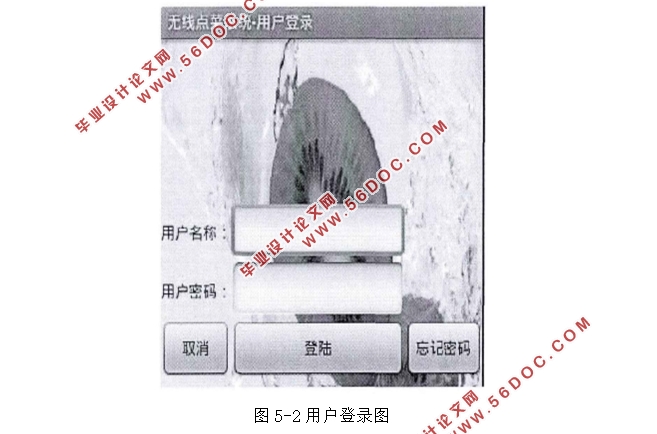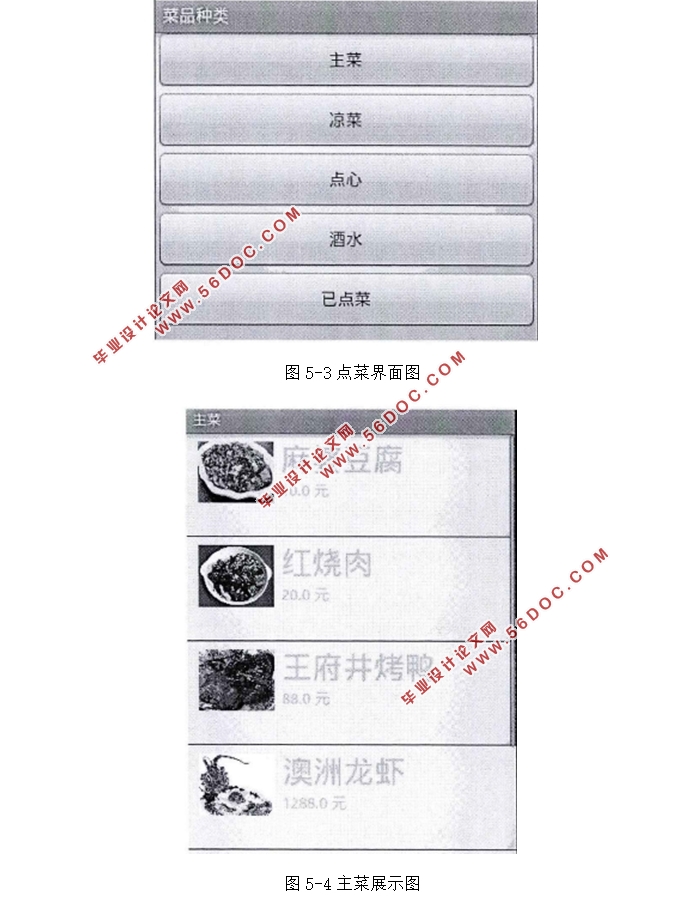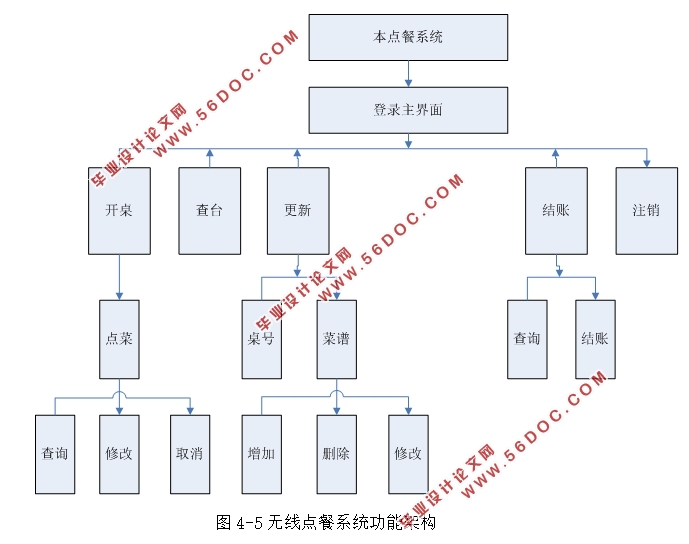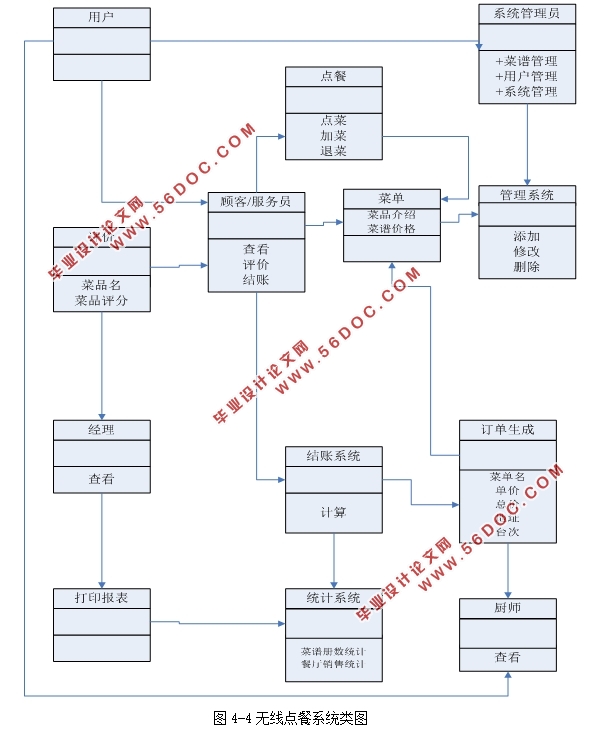基于安卓Android平台的无线点餐系统的设计(Eclipse,MySQL)(任务书,论文16000字,程序代码)
摘 要
本文主要阐述了基于Android平台的无线点菜系统的基本功能和软件开发。通过需求分析和规划资源,精心设计的用户界面,以及数据交换,并最终到达用户登录,订餐,结算等基本功能的点餐系统。系统正常工作时,每个页面的交互性是良好的。在系统设计中用数据流程图系统功能图,以显示系统的功能模块。
由于智能手机操作系统的不断上升以及手机的日益普及,越来越多的功能都可以实现,如果无线点菜系统和手机结合,不仅硬件为企业节约成本,同时也吸引了用户使用其进行点餐,形成新的亮点。同时优化管理流程,提升服务和管理质量,提升品牌形象和行业的核心竞争力。
关键词:无线 点餐 安卓 手机
Design and Implementation of Wireless
Ordering System Based on Android
Abstract
This article focuses on the basic function sand software development based on wireless ordering sternforemost Android platform.Through needs analysis and planning resources, well-designed user interface, and data exchange,and finally reaches the user logged in,ordering, billing and other hyperfunctioning system.When the system works properly, interaction of each pagehood.Data flow in the system designed system function diagram,functional display system modules.
Due to the rise of smart phone operating system and the growing popularity of mobile phones, more and more functions can be achieved if a combination of wireless and mobile ordering system, not on lythe hard ware cost savings for businesses,but also attracted users to use their meal conducted to form a new bright spot.While optimizing management processes,improve service quality and management,enhance the core competitiveness of the brand image and industry.
Key Words: Wireless;ordering;Android;cell phone
基于Android平台的无线点餐系统的总体流程包括如下步骤:
①顾客进入餐厅,由服务员的指引坐到了桌子;
②咨询服务员,并使用客户端操作开台;
③顾客使用客户端进行点菜;
④点菜完成后,客户可能会加菜或者退菜,服务员需要及时处理客户的要求;
⑤在完成客户订单之后,客户机可以查询菜肴的点;
⑥客户可进行菜肴确认,确认完成后,由服务员下单,菜单将很快通过前台和厨房,上传到服务器进行操作;
⑦前台完成对菜单的确认,并打印菜单,厨房根据菜单进行做菜;
⑧厨房出菜时与前台相比,以防止错误的粮食形势,然后服务员会被发送到相应的餐桌;
⑨顾客吃完饭后,到前台结帐操作。




目录
摘 要 I
Abstract II
第一章引言 1
1.1课题背景 1
1.2课题任务 1
1.2.1课题内容 2
1.2.2本人承担任务 2
第二章相关技术和开发环境 4
2.1 系统架构 4
2.2 关键技术 4
2.2.1 JDBC 4
2.2.2 Jquery 5
2.2.3 Ajax 5
2.3 开发环境及平台 5
2.4 应用平台Android 7
2.4.1 Android平台概述 7
2.4.2 Android平台的优点 7
2.4.3 Android平台的体系结构 7
第三章系统需求分析 10
3.1需求分析简述 10
3.2系统目标需求 10
3.3可行性分析 11
3.3.1技术可行性 11
3.3.2经济可行性 11
3.3.3操作可行性 11
3.4功能需求分析 12
第四章系统详细设计 13
4.1系统设计原则 13
4.1.1包设计原则 13
4.1.2外部接口设计原则 14
4.2系统物理结构 14
4.3系统数据流程图 15
4.3.1客户端数据流程 15
4.3.2服务器端数据流程图 16
4.4类图设计 17
4.5系统功能设计 18
4.5.1系统功能架构 19
4.5.2功能模块设计 19
4.6手机客户端与服务器的交互设计 21
第五章系统实现 23
5.1开发环境的搭建 23
5.2客户端框架 23
5.3客户端界面设计思路 24
5.4客户端功能实现 25
5.4.1登录功能实现 25
5.4.2点菜功能实现 26
5.4.3结帐功能实现 28
5.4.4注销功能实现 29
5.5服务器端功能实现 29
第六章结束语 31
6.1总结 31
6.2问题与展望 31
参考文献 33
致谢 34
|









